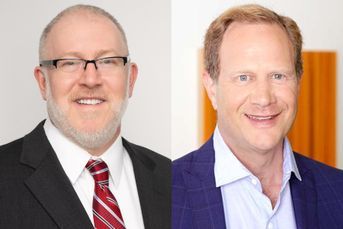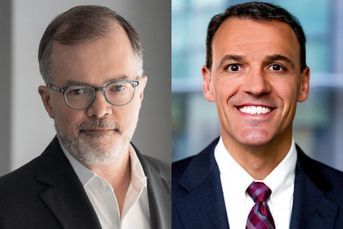Women’s fear about retirement cuts across party lines

Just over half of women who are 25 and older said they don't consider themselves financially secure; 77% of low-income women said the same.
A significant percentage of women are fearful about their financial futures and are looking to the government for solutions — no matter their political affiliations.
According to a pair of surveys commissioned by the National Council on Aging and the nonprofit Women’s Institute for a Secure Retirement, American women are struggling financially to the point where they are nearly unable to plan for a secure retirement. As a result, women are showing bipartisan support for federal policies that could improve their financial outlooks.
The study showed just over half of women ages 25 and older said they don’t consider themselves financially secure, with 77% of low-income women saying the same.
“It’s sobering to see such widespread financial insecurity among women in America,” Ramsey Alwin, president and CEO of NCOA, said in a statement. “We know that a woman’s ability to age well starts early — not just when she retires. If women of all ages are finding it difficult to stay afloat today, their chances of aging with security are dim.”
Nearly half of the women surveyed reported not having an employer-sponsored retirement plan, while nearly two-thirds of low-income women said they are not confident that they have the information they need to be able to plan and save for retirement.
“We know how much more likely employees are to save when there is an employer-sponsored plan at work, versus saving on their own. There is a real opportunity for employers to help change poor retirement outcomes for both women and men, by offering a workplace retirement plan, or joining state-sponsored programs if available,” said Kelly Famiglietta, partner at Charles Stephen, part of Advisor Group.
Most of the women surveyed said they are “worried” and “uncertain” when thinking about retirement, and a third of low-income women said they’re “terrified.”
“I believe that a few simple changes and understanding a few key planning concepts would allow these women to answer this question from a place of empowerment,” said Christina Nash, founding partner and financial adviser at Knox Grove Financial, part of Advisor Group. “Being financially secure is different for every person and it stems from exploring and having an understanding of what you believe would make you financially secure and applying that to your expenses and savings goals.”
The survey respondents supported a number of policies that could possibly help, such as making the cost-of-living adjustment for Social Security benefits more accurately reflect the cost of housing and health care, as well as providing a tax break to family caregivers to help cover out-of-pocket costs of providing care to a seriously ill, disabled or elderly loved one.
Other ideas that gained substantial support, according to the study, were raising the minimum Social Security benefit to above the federal poverty level and improving access to Social Security’s Supplemental Security Income program.
“Women are relying on bedrock programs like Social Security when it comes to their future,” said Cindy Hounsell, president of the Women’s Institute for a Secure Retirement. “We must protect and improve these programs to ensure they are financially prepared for a longer retirement.”
The recently passed SECURE Act 2.0 is a good example of a helpful program because it includes several opportunities for all Americans to increase their savings for emergencies and retirement, but especially women.
“The new law paves the way for employers to make contributions to 401(K) plans on behalf of employees paying student loans instead of saving for retirement,” noted Stephanie Bowens, CEO of Chrysalis Capital Management, part of Advisor Group. “This is beneficial for women because they are more likely to graduate from college with higher student loan balances.”
Learn more about reprints and licensing for this article.








